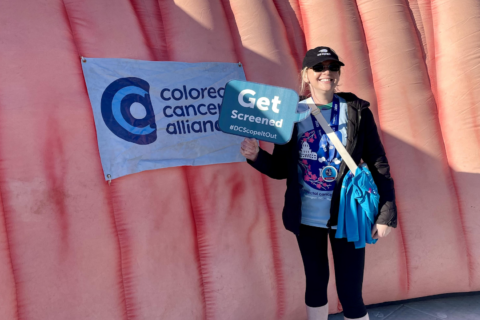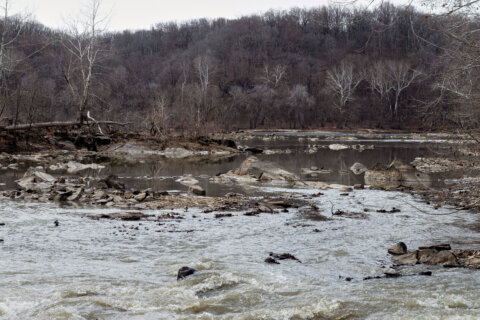Members of Maryland’s congressional delegation on Monday announced legislation that would make parts of the Chesapeake Bay a National Recreation Area, under the management of the National Park Service, and the public is being invited to comment.
The initial four sites that would be managed by the NPS are Whitehall Manor, on the Broadneck Peninsula; Burtis House, which sits between City Dock and the U.S. Naval Academy in Annapolis; Thomas Shoal Point Lighthouse, off the cost of Annapolis, and the north beach of Fort Monroe, in Hampton, Virginia.
The park service would acquire those sites either by voluntary sale or donation, and the hope is that more sites would also be added to the mix over time.
“We’re stitching together different parts of land that would come under the umbrella of the National Park Service,” said U.S. Sen. Chris Van Hollen at the announcement Monday at Burtis House.
The designation would “highlight the Bay’s culture,” said Van Hollen, as well as its history and economic impact on Maryland over the years.
Johnny Shockley, who comes from a long line of watermen on the Eastern Shore and himself was a waterman on Hoopers Island, said at the announcement that Bay watermen have “gone through a 200 year revolution.” He added that it was time for the watermen “to be celebrated as being part of the next 200 years, and beyond, of the restoration of the Chesapeake Bay.”
Shockley said he understands some watermen might not be so enamored with the idea of more federal involvement in the Bay.
“I spent a lifetime out there. I understand the impacts that added boat traffic, all these things have. But I also understand that we’re not going to stop that,” Shockley said after the event. “It is a natural evolution of this area because it is so incredibly dynamic and beautiful. What we have to do is accept that it’s going to happen and find a way to fold ourselves into the plan so we can continue and even enhance our presence, our incomes, and our lifestyles on the Bay.”
Van Hollen went out of his way to further explain what this designation would not do.
“It will not impact water rights,” said Van Hollen, after mentioning that about 90% of the Bay’s shoreline is privately owned. “It will not impact fishing rights. It won’t supersede state regulations on fishing and wildlife management. It won’t supersede state regulations on commercial water business and it won’t require the participation of any parties or land owners who are not interested. It’s all on a voluntary basis.”
The draft legislation is now up for 90 days of public comment, which will be folded into the final legislation set to be introduced in 2023.
“There’s precedent for this if you look around the country,” said Rep. John Sarbanes, who is championing this legislation in the House. He said there are close to 20 other National Recreation Areas already, and compared the Bay project to the Boston Harbor Island National Recreation Area, “which I think has about 30 different sites over time that have been added to that National Recreation Area.”
He said the four initial sites chosen for the Chesapeake NRA comprise “a great place to start in terms of demonstrating what the power of the Chesapeake Bay is.”
“This is for everyone,” he added. “This is for everyone who cares about this national treasure, the Chesapeake Bay. We want the establishing legislation to reflect the stories, the perspectives, the lived experiences of Bay communities as diverse as the ecosystems of the Chesapeake itself.”
Van Hollen said, “A unified designation will open more parts of the Bay to the public, which is a big win for all of our communities, especially those who have traditionally lacked access to the Bay.”








